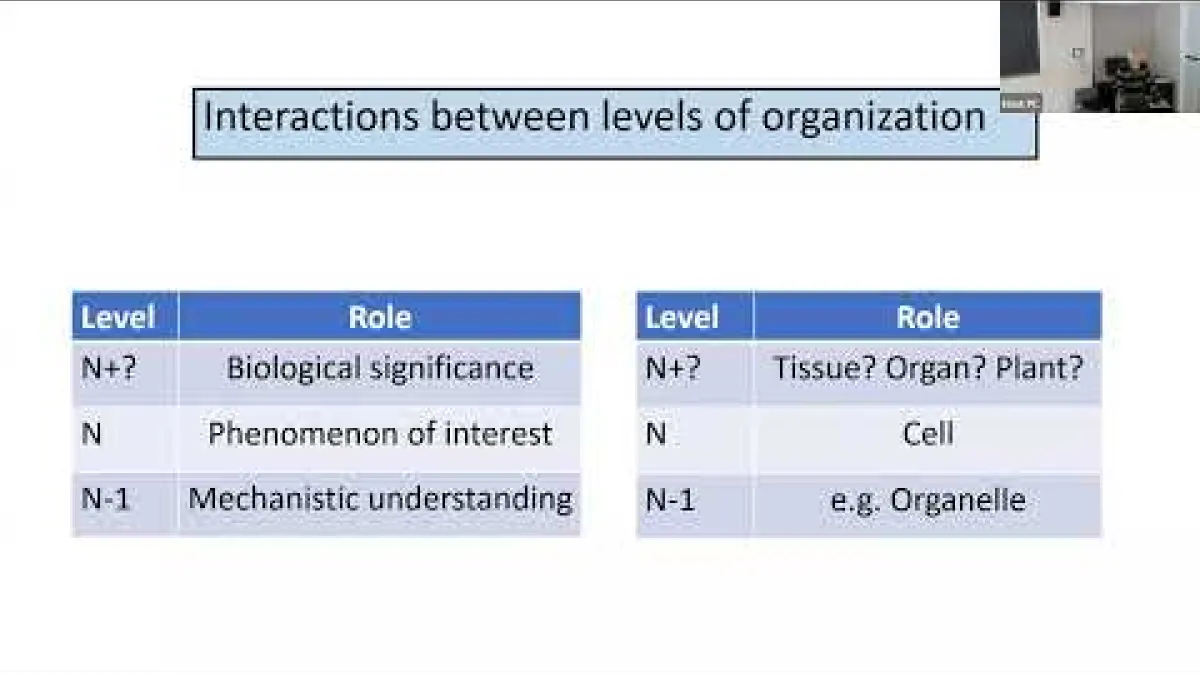PS Seminar Series: Translational Research in Agriculture. How Does It Work?
‘Translational research’ became an increasingly common term when it was realised that much agriculturally inspired basic research failed to contribute to the improvement of crops.
Speakers
Event series
Content navigation
Description
Abstract. ‘Translational research’ became an increasingly common term when it was realised that much agriculturally inspired basic research failed to contribute to the improvement of crops. Most of the failure has come from laboratory-based attempts to ameliorate abiotic stresses. Dealing with biotic stress has been much more successful; the control of pests and weeds is often enabled by transforming crops with single genes, for such genes have little or no influence on a crop’s metabolism. By contrast, abiotic stress varies with the weather; i.e. crops respond systemically, over a range of levels of organisation (e.g. cells, tissues, organs), with many feedbacks and feedforwards. Drought is the most pervasive form of abiotic stress. There are 4600 papers that have searched, ineffectively, for ‘drought resistance’, a term that usually defies useful definition. By contrast, dealing with a measured, limited water supply (e.g. seasonal rainfall), rather than with ‘drought’, has effectively increased water-limited yield through agronomic innovation based on improving water-use efficiency. ‘Salt tolerance’ has similar difficulties; nevertheless, physiological knowledge has revealed effective single genes, in contrast to the failures of empirical gene prospecting. Another important goal has been to increase potential crop yield by exploring mechanistic opportunities to improve photosynthetic efficiency. These attempts have not, so far, succeeded, perhaps because they have rarely broached physiological responses beyond carbon balance, such as metabolic responses to environmental challenges that may affect meristematic development. A major reason for the predominant failure of translational research from laboratory to field is that the peer-review system is too narrow; i.e. reviewers have the same backgrounds as the authors. Effective translation will require the addition of reviewers who can assess the pathway from laboratory to field.
Biography: John Passioura graduated with a bachelor’s degree in agricultural science (1958) followed by a Ph.D. in soil chemistry (1963) from Melbourne University, Australia. He joined CSIRO in 1966 after 3 years as a Postdoc in Europe. Until recently he held an emeritus appointment at CSIRO Agriculture in Canberra, and was formerly Leader of the Crop Adaptation Program there. His research has ranged over: soil chemistry and physics (transport of water and nutrients in soil and uptake by roots); plant physiology (water relations, drivers of growth rate and adaptation to abiotic stresses); and wheat pre-breeding and agronomy directed at improving water-limited productivity of dryland crops. He was elected Fellow of the Australian Academy of Science in 1994. He spent 6 years on partial secondment to the Australian Grains Research and Development Organization (GRDC) where he oversaw a portfolio of projects on soil and water management which aimed at improving both the productivity and environmental performance of Australian grain farms. Since then he has written several reviews relating to crop productivity and the pursuit of effective agricultural research. He has also worked as a consultant to the CGIAR, undertaking high-level reviews of several of their programs, existing or prospective.
Location
Please note: this seminar will be held in the Eucalyptus Rm and via Zoom, details are included below.
Eucalyptus Room, Rm S205, Level 2, RN Robertson Building (46)
Please click the link below to join the webinar:
https://anu.zoom.us/j/84083094506?pwd=bWlSQ1RPa3p2Y0txc2JDbVdmcmxKZz09
Webinar ID: 840 8309 4506
Passcode: 390013
Canberra time: please check your local time & date if you are watching from elsewhere.





